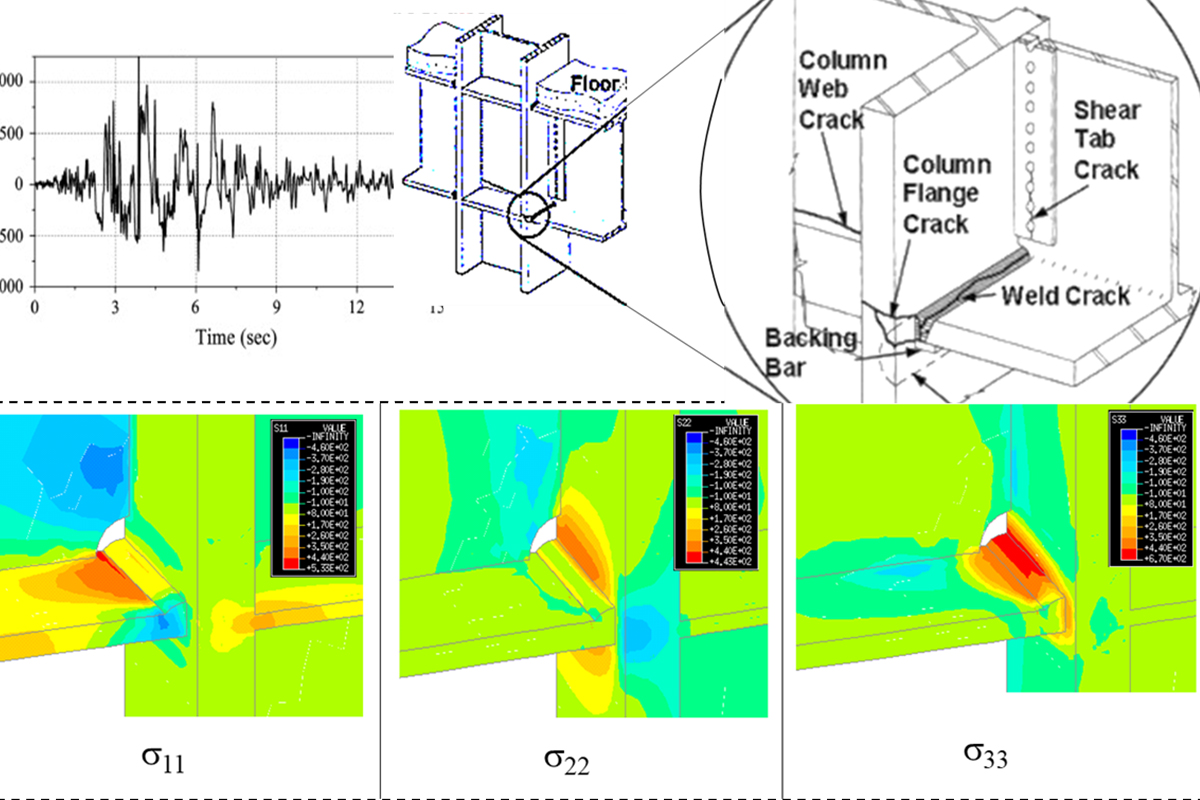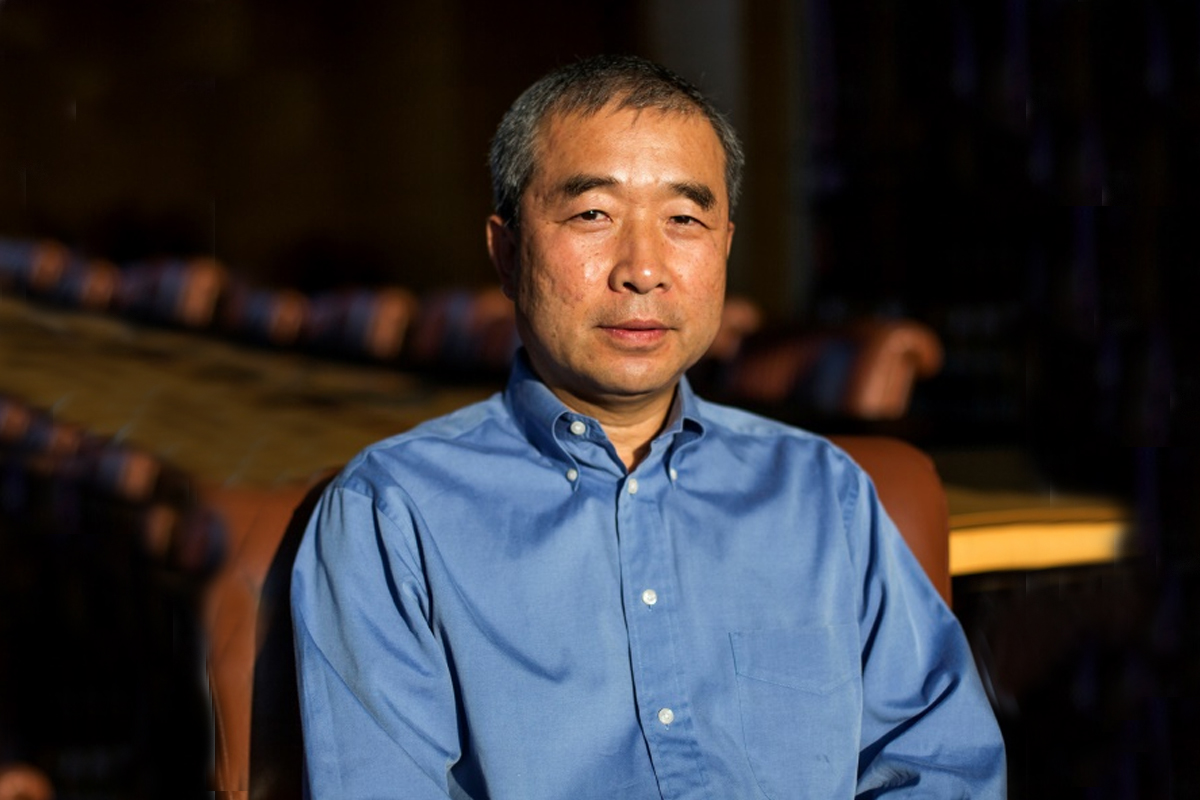
- This event has passed.
Seminar: Design of welded connections – Christchurch
July 12, 2018

Why attend?
Proper design and cost-effective construction of welded connections require considerations of some of the unique issues associated with welding, in addition to specific loading environment. These are weld in-situ strength, residual stresses, and geometric discontinuities, each of which plays a different role in contributing resultant joint strength, and fatigue/fracture resistances under different loading conditions, particularly seismic loading.

Seminar delivered in two parts.
Part I will start with some of the recent developments in supporting national and international Codes and Standards relevant to design and construction of civil steel structures. These topics include: fitness-for-service based quantitative weld defect acceptance criteria; fillet weld sizing criteria, weld residual stress consideration in fracture control, and fatigue (both high-cycle and low-cycle fatigue) evaluation procedures, e.g., the one stipulated by ASME Div 2 since 2007.
Part II will discuss how these new developments can be taken advantage of for supporting the use and making an appropriate interpretation of existing design and analysis methods given by various Codes and Standards for achieving joint strengths, and fatigue/fracture resistances required of civil steel structures through a series of case studies. These include: assessment of load capacity of full penetration butt welds versus partial penetration and fillet welds; low cycle fatigue and unstable fracture evaluation for seismic loading conditions; recommended weld repair procedures and rationales, etc.
A significant issue in today’s procurement environment is actually evaluating whether a steel product meets the product conformity. The sessions covering New Zealand steel product conformity and fabrication quality aspects will be presented by Michail Karpenko, HERA.
Who should attend?
Designers, structural engineers, consultancy engineers, mechanical engineers, maintenance and quality control engineers. The seminar will be especially relevant to all professionals in steel construction, design, fabrication and maintenance.
Delegates are encouraged to bring along their design problems to contribute to discussions and local case studies.
Duration
- Full day
- 9am to 5pm
Program
- 9.00am: Welcome and introduction
- 9.15am: Part 1 – Recent developments for improved treatment in design of welded joints in codes and standards. Covering defect acceptance criteria; basis of fillet weld sizing; & stress concentration determination
- 10.30am: Morning tea
- 10.45am: Part 1 continued – Residual stress considerations in FFS; case studies including brittle fracture assessment of MRC, SCC in a storage tank, fatigue life improvement of a high speed train motor frame, etc; comments on related parts of AWS D1.1, BS7608, BS 7910, ASME Div 2 and API 579Stress concentration determination
- 12.15pm: Lunch
- 1.00pm: Part 2 – Applications in using existing codes and standards. Covering qualitatively assessing load capacity of full penetration butt welds and fillet welds; in-situ weld strength determination method; low cycle fatigue evaluation of welded connections for seismic loading
- 2.30pm: Afternoon tea
- 2.45pm: Part 2 continued
- 3.30pm: NZ and Australian welding requirement. Covering AS/NZS 5131, 1554 & 3992, AS 4458, and AS/NZS ISO 3834 & 9606.1 – presented by Michail Karpenko
- 4.15pm: Fatigue evaluation of steel bridge details using AASHTO beyond specfied weld categories
- 5.00pm: Q&A and end of seminar

Professor Pingsha Dong | University of Michigan | Welded Structures Laboratory Director
I’m the inventor of the mesh-insensitive structural stress method (also referred to as the Master S-N Curve Method) adopted by the 2007 ASME Div 2 and API 579/ASME FFS-1 Codes and Standards mandated by over 50 countries worldwide. Over the past 10 years, I’ve taught courses in fatigue design, fracture control, residual stress/distortion control in over a dozen countries around the globe. I’ve also published more than 180 peer-reviewed papers in archive journals and major conference proceedings, including over 20 plenary/keynote lectures at major international conferences. I’ve received numerous prestigious national and international awards/recognitions, including AWS Fellow Award (2015), IIW Fellow Award (2014), SNAME Helmer L. Hann Award (2012 and 2007), IIW Evgeny Paton Prize (2008), R&D Magazine’s R&D 100 Award (2006), TIME Magazine’s Math Innovator (2005), Aviation Week and Space Technology’s Aerospace Laurels Award (2004), SAE Henry Ford Award (2003), AWS R.D. Thomas Award, and ASME G.E.O Widera Literature Award (2002), among many others.
$375
$490
$575
HERA Ordinary members
HERA Associate, SCNZ, CBIP, NZSSDA, SESOC & Engineering NZ members
Non members
jkl;jkl
35% discount
15% discount
Full price
- Does our Ordinary member fee sound attractive but you’re unable to leverage? Don’t forget, it’s not too late to upgrade your membership tier to take advantage of these greater discounts for all HERA related courses, seminars, workshops, event hire, publications and more! Inquire today by contacting our Manager Membership Services and Support Brian Low.
- Fee’s include event entry, tea & coffee, lunch and seminar notes
- Persons enrolled who wish to cancel must do so in writing. Up to 14 days prior to the seminar a 10% administration deduction fee applies. Between 7 – 14 days prior a 50% deduction applies. Less than seven days, no refund will be provided.
Address
Commodore Airport Hotel
449 Memorial Ave
Burnside
Christchurch 2104
Not based in Christchurch?
Click on our other locations below to register there instead.
Auckland – 10 July 2018
Wellington – 11 July 2018
I�m sorry � registration for this course has now closed.
We suggest you search our events section online to see if we�re holding this particular course in another location that would suit you. Alternatively, we can place you on a waitlist for the next available course.
To do so, please send an email to admin@hera.org.nz with subject title: Course waitlist request. Please include your full name, company, contact phone number, course and location you�re interested in within the email.